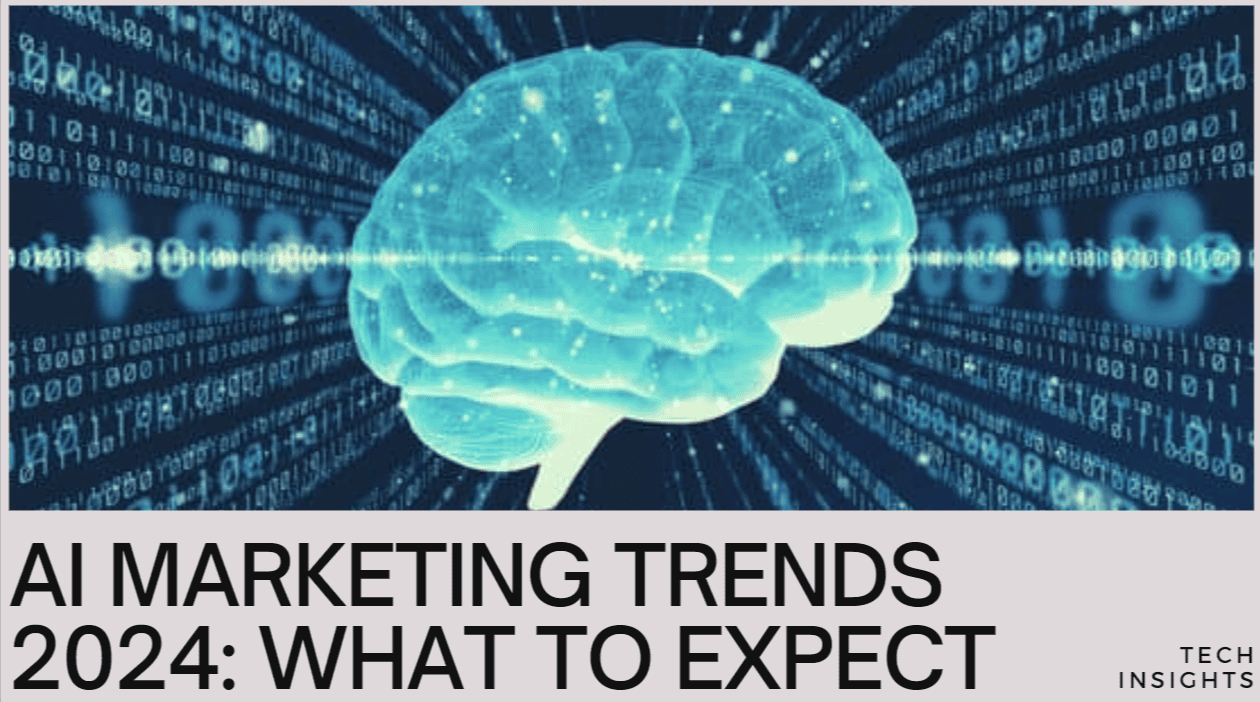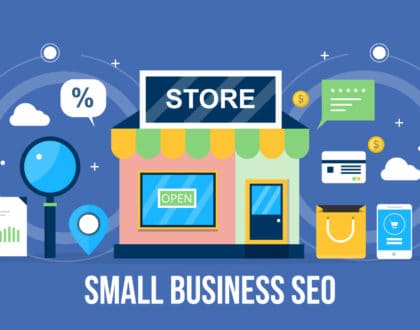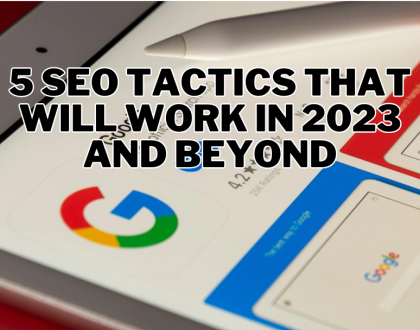The Future of Artificial Intelligence in Marketing: Top 9 AI Trends Shaping 2024

The Future of Artificial Intelligence in Marketing: 9 Key Trends for 2024
Introduction
The involvement of artificial intelligence and machine learning in marketing has increased recently. As of mid-2024, OpenAI would be the most disruptive.
Almost 90% of martech leaders believe that Generative AI is a key element of their marketing strategy. Companies must leverage ChatGPT 4 or Generative AI technology to keep pace with increasingly competitive and data-driven marketing trends.
It’s not all bad news, though! The best part is that AI will help companies personalize their chatbots and ads according to their customers. Automating lead collection and email marketing will enable marketers to foolproof their strategy and ensure a particular degree of success. New-age marketers who embrace automation in omnichannel marketing will gain a competitive edge over traditional ones.
This article will cover 9 AI trends dominating the marketing landscape as of 2024.
9 Top AI Features for Enhancing Marketing
ChatGPT 4
With generative AI revolutionizing content production, marketers have revamped their content game. Gen AI content is taking over both short-form and long-form content, from blog titles to news reports.
Artificial intelligence has enabled marketers to produce large amounts of high-quality content. AI can identify trends and customize a brand’s tone and voice according to the platform on which the content is promoted.
Content writers and marketers save time and money by getting their content game right. When Gen AI is used to analyze campaign performance and expedite A/B testing, results are generated faster, allowing marketers to run multiple campaigns simultaneously.
AI also helps content marketers identify the context that resonates best with the target audience. Seek out the exact places where your audience has been for a long time. Adapt your content accordingly. For instance, create posts on personal branding to position yourself as a thought leader on LinkedIn. Use Instagram, TikTok, and YouTube to create content about your USP and how it has helped your clients.
A recent study shows 85% of organizations will have analysts practicing decision intelligence, including decision modeling.
Personalized Marketing
A study by Experian found that personalized emails and text messages had a 29% higher open rate and 41% higher ‘Click through’ rate than non-personalized text.
Savvy marketers are now leveraging AI to personalize marketing content according to the person for whom the message is intended. With chatbots and Gen AI taking the reigns of content production, the new-age marketer can craft personalized, well-researched content for every campaign.
You can get reports on campaign performance and accelerated A/B testing—you name it—with AI on your side. Get reports on specific metrics like bounce rate or CTR for particular days and hourly data to deep-dive into customer behavior and find the best time to send them emails and push notifications. AI also helps you segregate male and female customers and run specific campaigns to boost conversions.
AI for Predictive Analysis
Analyze current and historical data to understand the common behavioral traits of your target audience. According to statistics, 48% of businesses use Machine Learning and predictive analytics to make data-driven decisions. With machine learning techniques, you can train your AI model to use real-time data to identify risks and opportunities and make accurate decisions.
Get reliable insights to decode customer behavior and buying patterns. You can also use the information for effective stock management and create shipping schedules to control the upsurge in orders during Christmas or the New Year. In certain rare cases, predictive analysis can provide you with reports highlighting malicious activities on your website, hacking attempts, and cybersecurity breaches.
Improve your backend operations with timely reports to smooth customer experience and provide your clients with good presale and post-sales services. The faster you handle customer queries, the more trust you build with your stakeholders. Predictive models can help you staff better service premium clients by foreseeing inventory expansion needs or increasing service requirements, for example.
This AI modeling can also help your team understand events in the life cycle of an average customer and forecast their needs, for example, car insurance for new cars, upgrading the car after five years of purchase, etc. Insurance companies can send timely alerts with the data to upsell to their existing customers, boost sales, and get referrals to expand their customer base.
Chatbot Assistance for Customer Service
Chatbots integrated with ChatGPT or any Gen AI software can provide 24/7 support for your website or eCommerce store. When integrated with any direct response, a language processing model can mimic a human agent while troubleshooting and delivering solutions to customer tickets.
If the issue is still unresolved, it can be seamlessly handed over to a human agent without the end consumer facing any delays or hassles. Additionally, AI can create quizzes or surveys that the website can use to generate leads or understand buyer dissatisfaction to improve the business, leading to more sales in the future.
Chatbots are relatively cheaper than hiring a team of multilingual customer support executives. They are also available 24/7 to respond to website visitors.
As per Arxiv, it can respond to repetitive queries and bring out latencies by almost 90%. By fast-tracking query resolution, the customers When chatbots are deployed on your website, you can use them to announce special offers and suggest products according to their search history. This makes the customer experience personalized, driving more sales for the business.
Website Optimization for Voice Search
Recently, optimizing your content for voice search on devices such as Google Home and Amazon Echo Spot and voice assistants such as Google Assistant, Alexa, and Siri has become important.
These voice assistants throw one or two results max to enable the customer to make quicker decisions, and the content needs to be optimized accordingly. With Natural Language Processing Models coupled with Gen AI, marketers can focus on long-tail keywords, for example, ‘mixed fruit jam 500 grams’ or ‘Pampers newborn diapers large pack,’ for easier identification by voice assistants.
NLP, when coupled with AI, can produce data that can be used to predict customers’ buying preferences with their audio, and the audio ads can be targeted for AR-specific times of the day. Creating a database on the same, revisiting the data, and extrapolating the reports to get multiple points of view to make better data-backed decisions. This can come in handy when targeting high-ticket clients who value the product and the services and are willing to pay premium prices.
Marketers can expect a higher level of engagement when the campaign is targeted better. They can also foresee better conversions on the sales front as the leads are responsive and more inclined to make a purchase.
AR Technology
Augmented Reality is the latest marketing strategy that shows the end user what it’s like to use your products through an immersive experience. By creating a sensory experience that makes the audience remember the brand and the product for longer, the brand can gain a competitive edge and positively influence their decision-making.
Personalizing the experience for customers, especially those with physical disabilities, would improve the brand image and offer an inclusive marketing strategy that can boost sales numbers. It also benefits customers who cannot visit the store or live overseas, and your product would be a gift for their loved ones.
An immersive ad with tantalizing lights and a melody explaining what the product can do is all your potential online customers need before they hit the ‘buy now’ button. Augmented Reality helps the customer understand the product better and is the next best thing if the business does not have a physical store.
Luxury brands use AR technology to make precious jewelry (like gold or diamonds), watches, and other items. Products can only be opened from the package once a buying decision is made and the item is purchased. According to a report by Deloitte, 88% of small and medium-sized businesses combine Augmented Reality with specific processes.
Sentiment Analysis
Analyzing the sentiment of the reviews and comments on the product with AI sentiment detection is much easier than having a team of individuals read them all and list things the customers wish to have changed.
Marketers use sentiment analysis to conduct extensive market research with accelerated social listening. This helps them understand users’ general sentiments while interacting with brands. Chatbots can employ this method to understand customers’ moods and deliver empathetic responses to their queries.
Imagine a customer who types a query while being frustrated with the lengthy process for a refund. The chirpy-toned message from a chatbot can further irritate the customer and cost you a loyal buyer leaving for your product, a problem that can be resolved efficiently.
For a seamless experience, the chatbot is expected to deliver an apology and guide the customer swiftly to the most effective solution, which can also be combined with an offer or a discount.
Cyber Security
AI can protect your business from online fraud. With payments made in several currencies bringing in sales from all over the world, it is important that your website is secure and handles user data responsibly. AI can detect threats more easily and respond better to cyber-attacks or viruses.
Several businesses, including personal finance platforms, can integrate AI with blockchain to improve security measures. From securing credit card information to protecting websites from malware, AI integration can greatly safeguard sensitive data. It helps you run threat detection protocols to reduce the load on cyber security engineers and, to an extent, help you find the source of such attacks.
Additionally, AI can improve IAM, which stands for Identity and Access Management, to help businesses monitor and adjust the level of access each employee or stakeholder gets based on their security clearance.
AI makes cybersecurity more robust, accurate, and efficient, allowing websites to be more prepared for cyber threats. AI also helps cybersecurity professionals analyze multiple data sources simultaneously to provide a comprehensive overview of the danger and help them defend their native systems better without leaking sensitive data.
Chatbots in Messaging Apps
As per BusinessChat, WhatsApp marketing has gained momentum, with an average open rate of 98%. Leveraging this trend, most marketing agencies have used this mode of communication to promote their products. eCommerce websites can send ‘abandoned cart’ notifications and special discount codes to regular customers to boost sales, especially during holidays and festive seasons.
Customers can opt-in to track their order status without having to visit the website now and then. They can just type the order number or their phone number to know exactly where the ordered items are, whether in transit or at the final delivery station—schedule messages when the customers take predetermined actions, like placing an order or wishlisting a particular item.
Send non-spamming short messages that address customers by name and personalize the content for each segment of your client base. WhatsApp business accounts can have their catalog and website information in their bio. Here, they can also send broadcast messages to their entire community to notify them about an awaited restock of a fan favorite product or any downtime due to website maintenance activities.
By proactively sending them information, customers are better informed, and repetitive queries regarding their order or payment confirmation can be avoided. It also helps address pressing customer issues like the non-delivery of orders or damaged goods.
Conclusion
This article wants to answer the million-dollar question, “Can AI replace Human Marketers?”. The answer can be ‘no, not really’.
While AI can eliminate repetitive tasks and generate reports, it cannot replace decision-makers. It can, however, enable marketing professionals to make data-backed decisions and minimize risks, ensuring successful campaigns that generate more sales for the company.
Though AI is learning faster and can assess risks, it still lacks the creativity and ability to understand human reactions, especially sarcasm, amongst other subtle emotions.
AI also needs more intuition, which can result in false or unrelated information being delivered to customers. This can, at times, derail all your sales and marketing efforts. AI has not yet understood dialects and linguistic expressions in native languages. However, apart from such shortcomings, AI can help marketers make better decisions and handle adverse situations gracefully when used wisely.
Contributed by: Harikrishna Kundariy, marketer, developer, IoT, Cloud & AWS savvy, co-founder, and director of eSparkBiz Technologies.
Recommended Posts

15 Most Important SEO Tips for Higher Rankings in 2024
March 12, 2024

Be Seen, Be Found: Supercharge Your Small Business with SEO
February 28, 2024

SEO Tactics That Will Work in 2024 and Beyond 🚀
June 19, 2023
